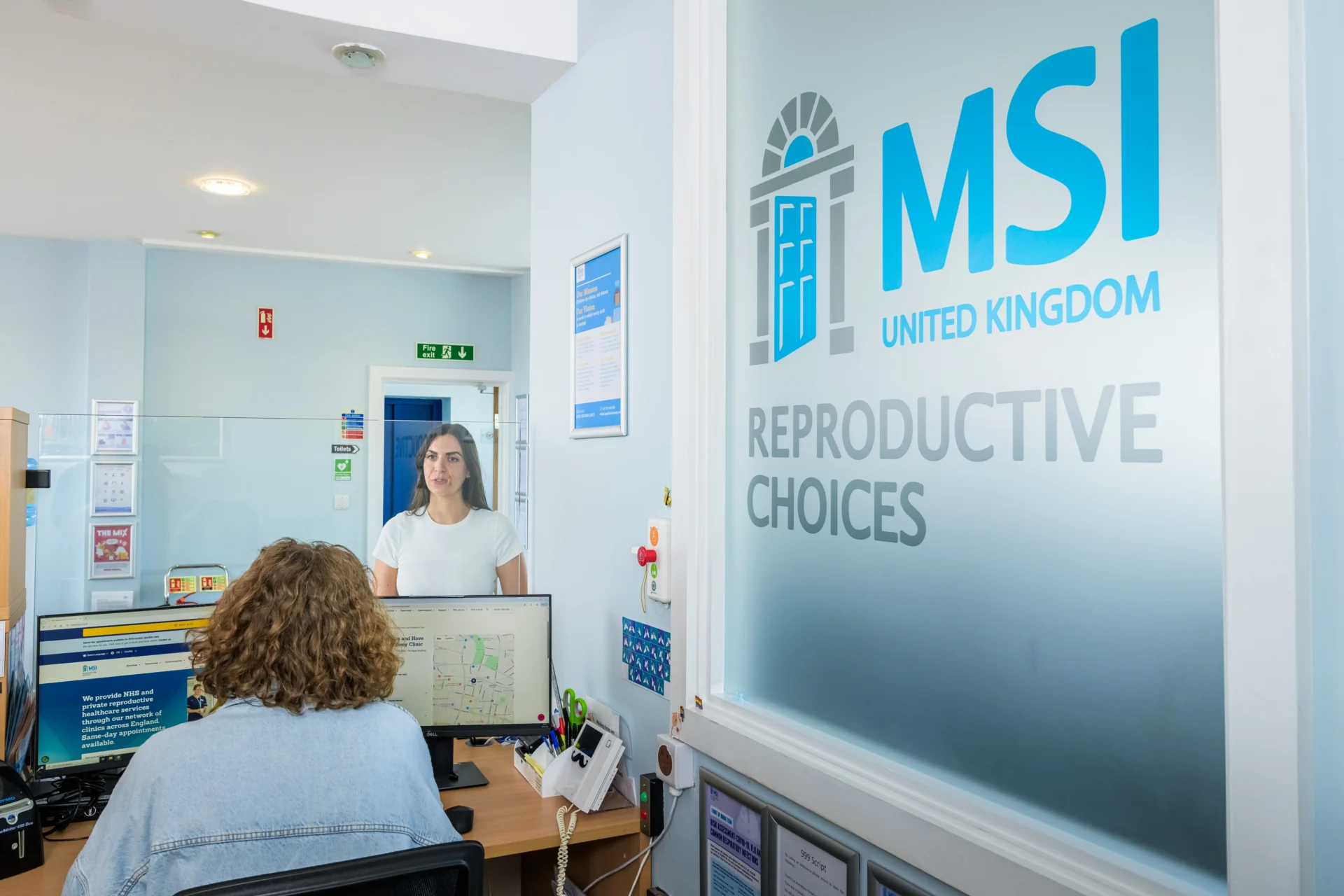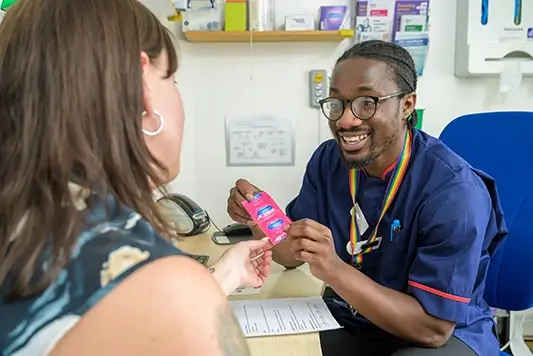Endometriosis Awareness Month: Endometriosis and Contraception
To mark the beginning of Endometriosis Awareness Month, we spoke with Simphiwe Sesane – CaSH Nurse Consultant at MSI Reproductive Choices UK – about the condition, and how contraception might help.
In the UK, around 1.5 million people are currently living with endometriosis.
Endometriosis (pronounced en- doh – mee – tree – oh – sis) is the name given to the condition where cells similar to the ones in the lining of the womb (uterus) are found elsewhere in the body.
To mark Endometriosis Awareness Month, we spoke with Simphiwe Sesane – Faculty Registered Trainer at MSI Reproductive Choices – about the condition and which methods of contraception may help to ease symptoms such as heavy bleeding and painful periods.
What are the symptoms of endometriosis?
Painful periods, pain during or after sex, infertility, painful bowel movements and fatigue are the most common symptoms when it comes to endometriosis, but there are many more. It is important to remember that endometriosis symptoms vary and not everyone experiences them in the same way.
Although there’s no cure for endometriosis and it can be difficult to treat, treatment aims to ease symptoms, so the condition does not interfere with your daily life.
What contraceptive method would you recommend for someone with endometriosis?
One contraceptive method we recommend for people with endometriosis is the IUS (also known as the hormonal coil). This coil can work to treat symptoms of endometriosis because it thins the lining of the uterus, making periods lighter and less painful.
The aim of hormone treatment is to limit or stop the production of oestrogen in your body, as oestrogen encourages endometriosis tissue to grow and shed.
The IUS is an example of a LARC – Long-Acting Reversible Contraception – method, which once inserted, doesn’t have to be replaced for up to eight years.
Several small clinical trials have investigated the effectiveness of the hormonal coil for treatment of endometriosis. The results to date indicate that it reduces period pain over 3 years, with most of the improvement being in the first 12–18 months.
Although not produced for this reason, some combined hormonal methods of contraception may also ease the symptoms of endometriosis by thinning the lining of the uterus. These methods include: the combined patch, the combined ring and the combined pill.
The combined pill can be an effective in making periods shorter and lighter. It can also safely be taken without breaks, stopping periods completely.
What contraceptive method would you not recommend for someone with endometriosis?
The progestogen-only pill (also known as the ‘mini pill’) and the contraceptive implant may also make your periods lighter or stop altogether, but for some women periods may become unpredictable, heavier or longer.
We would also advise against the IUD (also known as the copper coil or the non-hormonal coil), as this coil can cause heavy and painful periods.
Although contraception can sometimes help ease symptoms of endometriosis, everybody is different. It may take some time to find a method that works for you – but clinicians will be able to talk through all of your options and help you make a choice.
Useful links
To read more about endometriosis, click on the links below:
To read more about contraception on our website, click on the links below:
“Choice” our digital contraception counsellor
At MSI Reproductive Choices UK, we know that learning about contraception makes people better equipped to have healthier, safer and more enjoyable sex lives. We have launched a personalised contraceptive counsellor, which allows users to fill in a questionnaire and see a ranked list of contraceptive options for you.
Check out our Contraception Counsellor online tool here: Choice – MSI’s Digital Contraception Counsellor
Our contraception clinics
We have recently launched contraception-only clinics in:
- London (for clients in Camden, Islington and Lambeth)
- Hertfordshire
- West Yorkshire
- Essex
- Dorset
If you live or are registered with a GP in these areas, contact us on our dedicated phoneline 0345 300 2350 for your contraception counselling appointment.
Aside from these three clinics, MSI UK can only offer you contraception counselling as part of your abortion treatment. If you would like to access contraception counselling but are not having abortion treatment with MSI UK, ask your GP or local sexual health clinic about services in your area.







